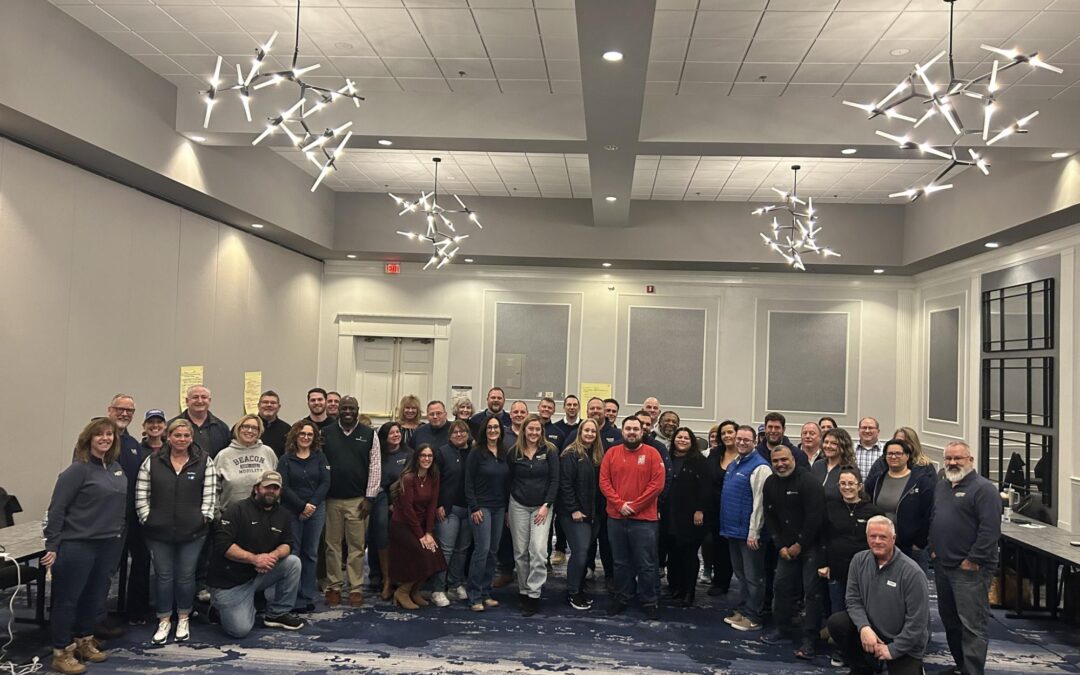The rise of hybrid corporate events has redefined what it means to gather. While 75% of organizers went fully virtual during the pandemic, 47% now consider hybrid formats the most effective way to engage both in-person and remote audiences. But pulling off a seamless dual-venue experience—especially in Boston—requires precision.
As a trusted leader in corporate event transportation in Boston, Local Motion has supported events with over 10,000 attendees, navigating tight timelines, complex routes, and unpredictable city traffic. Why does this matter? Well-managed transportation can improve event operations efficiency by 35%. And companies that invest in meaningful in-person connections see up to an 18% boost in productivity and a 23% increase in profitability.
In this guide, we break down how to plan, manage, and optimize transportation for hybrid events across multiple Boston venues—so your team, clients, and virtual participants all get a five-star experience.
What Are Dual-Venue Hybrid Events—and Why Boston?
Dual-venue hybrid events combine physical gatherings with virtual participation—offering flexibility, accessibility, and deeper engagement. But they also introduce a major logistical challenge: how to keep everyone connected, in real time, across both physical and digital platforms.
Why Boston Is a Unique Hybrid Host City
Boston is built for events. With over 19 million annual visitors, the city offers:
- 3 major convention centers
- 125+ hotels with meeting space
- Waterfront, downtown, and academic venues within walking or shuttle distance
But Boston is also a centuries-old city with:
- Narrow, one-way streets
- Complex permitting zones (especially near Seaport and Fenway)
- Heavy traffic and unpredictable weather
These variables demand local knowledge and a proactive transportation strategy.
Planning Transportation for Hybrid Events in Boston
Every successful dual-venue event starts with a transportation plan that aligns with both your programming and your physical footprint.
Map Attendee Movement
Start by asking:
- Where are attendees arriving from—airport, hotel, or other venues?
- Are there accessibility needs?
- Will movement be one-way, round-trip, or rolling transfers?
Thanks to Boston’s compact layout, many venues sit within a few miles of each other. But even short distances can become time traps without traffic-aware scheduling.
Coordinate Venue Access and Schedules
For each venue, confirm:
- Loading zones and drop-off points
- Freight elevator access (for gear-heavy setups)
- Best travel windows based on real-time traffic data
Proactive coordination reduces logistical delays by up to 40%.
Build a Transportation Timeline
Start early. A sample timeline for Boston-based hybrid events:
- 3–4 Months Out: Stakeholder coordination
- 2 Months Out: Transportation feasibility + route study
- 6–8 Weeks Out: Capacity planning + vendor booking
- 2–3 Weeks Out: Final logistics + contingency reviews
Budget for the Full Picture
True cost control comes from forecasting more than just vehicle rentals:
- Direct Costs: Drivers, fuel, vehicle hours
- Indirect Costs: Parking fees, permits, admin time
- Add-Ons: Executive shuttles, ADA-compliant vehicles, WiFi-enabled buses
Bundle where possible to save—Local Motion offers custom packages for airport pickups, venue shuttles, and all-day event circuits.
Smart Tech Tools to Enhance Event Transportation
Modern hybrid events demand modern tools. Here’s what today’s best event planners rely on:
Real-Time GPS + Fleet Tracking
Stay in sync with traffic updates, location pings, and weather overlays. Geofencing lets you auto-alert staff when vehicles arrive.
Digital Attendee Communication
Give your guests a professional, informed experience:
- Live shuttle tracking with ETAs
- Push notifications for changes or delays
- Two-way chat with transportation coordinators
Transportation Management Dashboards
Consolidate all logistics into a single view:
- Route planning and vehicle assignment
- Live fleet monitoring
- Dynamic dispatch adjustments based on real-world traffic
With tools like these, your transportation runs with as much precision as your event agenda.
Contingency Planning: The Boston Factor
Boston weather can change everything—fast. Between snowstorms, flash floods, and high winds, your transportation strategy needs built-in flexibility.
Weather-Driven Disruptions to Watch For:
- Winter: Icy roads, tree-limb subway delays, flight diversions
- Summer: Flash flooding, road closures, ferry service suspensions
Backup Transportation Essentials:
- Pre-routed alternative paths
- Standby vehicles from multiple vendors
- Ferry access options where possible
Communicate contingencies in advance so attendees know their options—and you maintain trust and professionalism.
Emergency Protocols for Large Events:
Work with Boston’s Emergency Management department and include:
- Live weather tracking
- Evacuation routes for each venue
- SMS/email updates to all attendees (in-person and virtual)
A rock-solid risk plan minimizes disruption and boosts confidence.
Final Thoughts: The Future of Corporate Events Is Hybrid—and Local
Hybrid events aren’t just a post-pandemic trend—they’re a strategic advantage. They extend reach, improve accessibility, and support flexible team engagement. But their success relies heavily on seamless corporate event transportation, especially in a city like Boston.
Whether you’re moving VIPs between Seaport and the Back Bay, or coordinating real-time transfers while virtual attendees watch live, transportation is your glue.
Local Motion of Boston offers full-service transportation logistics for hybrid events of all sizes. With deep local knowledge, flexible fleet options, and real-time tech support, we help you deliver the smooth, unified experience today’s events demand.
Planning a hybrid event in Boston?
Let Local Motion handle the transportation. → Get a quote or explore our event logistics packages today.






